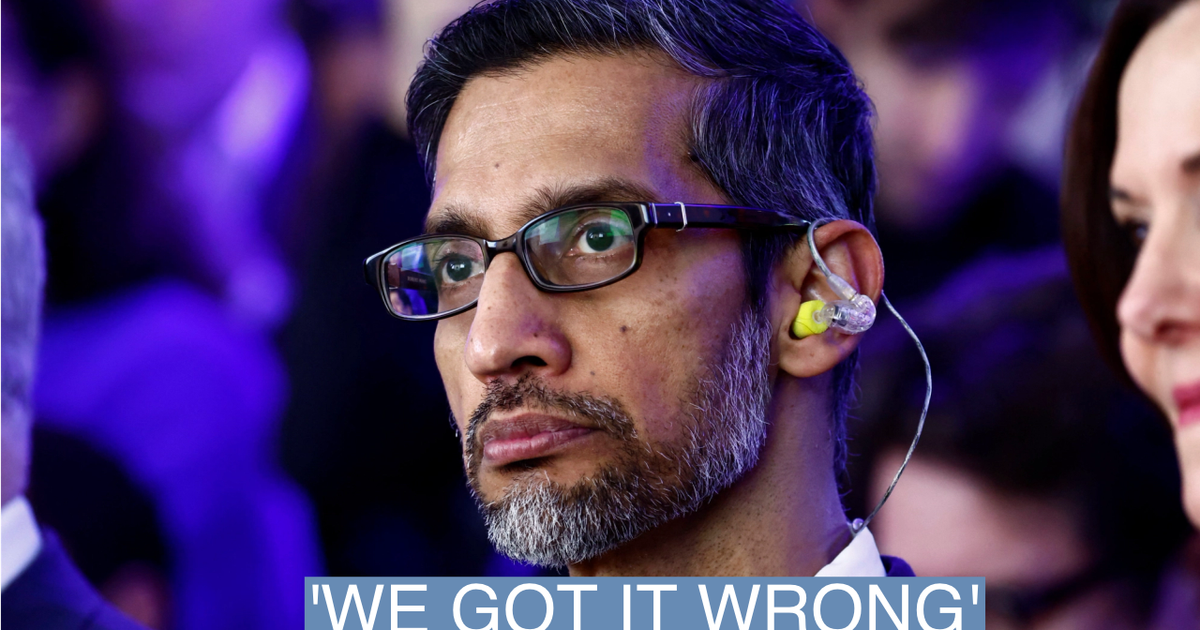AI is an acid test for the GAFAMs

Are we still calling the top U.S. tech companies GAFAM? Is it magnificent seven now? I don't know or really care, to be honest. The term GAFAM is, in any case, transitioning to describe the old guard of digital giants, the ones that established dominance in the post-internet bubble. Prehistoric times as far as digital is concerned.
But now, now, large language model-flavored AI is kicking in at scale right and left, and the GAFAMs are showing what's left of their real muscles facing this core perturbation to their business model. If Microsoft clearly affirms visionary leadership and operates smoothly and swiftly with AI, Google is at the opposite of the strategic scale—such an irony for the company that pretty much invented the core technology a decade plus ago.

Sundar Pichai's latest internal memo to the company is scathing:
"I want to address the recent issues with problematic text and image responses in the Gemini app (formerly Bard). I know that some of its responses have offended our users and shown bias – to be clear, that’s completely unacceptable and we got it wrong.
Our teams have been working around the clock to address these issues. We’re already seeing a substantial improvement on a wide range of prompts. No AI is perfect, especially at this emerging stage of the industry’s development, but we know the bar is high for us and we will keep at it for however long it takes. And we’ll review what happened and make sure we fix it at scale.
Our mission to organize the world’s information and make it universally accessible and useful is sacrosanct. We’ve always sought to give users helpful, accurate, and unbiased information in our products. That’s why people trust them. This has to be our approach for all our products, including our emerging AI products.
We’ll be driving a clear set of actions, including structural changes, updated product guidelines, improved launch processes, robust evals and red-teaming, and technical recommendations. We are looking across all of this and will make the necessary changes.
Even as we learn from what went wrong here, we should also build on the product and technical announcements we’ve made in AI over the last several weeks. That includes some foundational advances in our underlying models e.g. our 1 million long-context window breakthrough and our open models, both of which have been well received.
We know what it takes to create great products that are used and beloved by billions of people and businesses, and with our infrastructure and research expertise we have an incredible springboard for the AI wave. Let’s focus on what matters most: building helpful products that are deserving of our users’ trust."
Sundar stops shorts or shouting, "We are a burning platform," but it's getting close. As I wrote about Google early last year (before the AI explosion):
As big and resilient as your current cash cow, it creates a complacency culture that will eventually jeopardize your business. If you haven't prepared ahead, when you'll need to kill this cash cow, the level of uncertainty you’ll face will be too high to shrug off. How do you let go of a successful market and change the fundamental rules that made you successful?
My prognosis later on was not a good one, and it seems on point... Now, what about Apple and Facebook?
From Mark Gurman, Apple analyst extraordinaire, and just out today:
Apple Inc. is canceling a decadelong effort to build an electric car, according to people with knowledge of the matter, abandoning one of the most ambitious projects in the history of the company. Apple made the disclosure internally Tuesday, surprising the nearly 2,000 employees working on the project, said the people, who asked not to be identified because the announcement wasn’t public. The decision was shared by Chief Operating Officer Jeff Williams and Kevin Lynch, a vice president in charge of the effort, according to the people.
"Hey Siri, are you getting better soon?"
No pressure... 🍿




